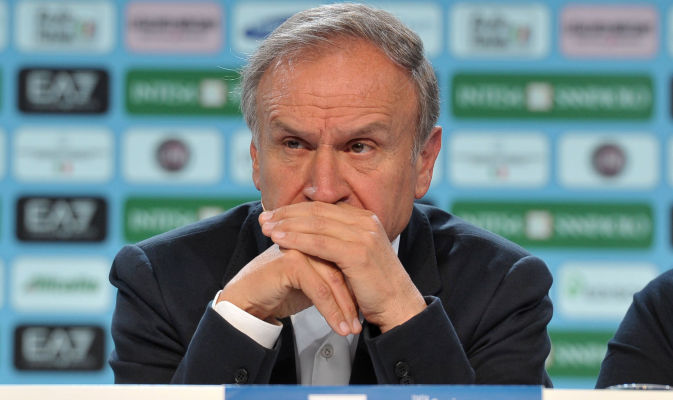In the intricate tapestry of Italian sport, few threads run as consistently and vibrantly as that of Gianni Petrucci. Having recently celebrated his 80th birthday, Petrucci stands not merely as a veteran but as a living archive, a figure whose decades at the helm of various sporting bodies have made him a statesman, a connector, and a shrewd navigator of the often-turbulent waters where athletics meet politics.
The Enduring Philosophy of a Restless Mind
Petrucci’s longevity in leadership isn`t just a testament to his resilience; it`s, in his own words, a product of his unique approach to time. “I sleep very little,” he states, with a touch of self-assured irony, “and I’ve noticed that those who do are more intelligent than others: they start earlier and have more time for things to do.” While neuroscientists might raise an eyebrow at this direct correlation, Petrucci’s unwavering energy is undeniable. He does, however, concede to one sacred ritual: the afternoon nap. A habit, he notes, once championed by industrial titan Gianni Agnelli himself. One might interpret this as Petrucci`s pragmatic embrace of selective wisdom – if it works for the greats, it might just work for him too.

A Pantheon of Connections: From Industry Captains to Global Leaders
Petrucci`s career is a masterclass in networking, weaving through the highest echelons of Italian society. He recalls Agnelli`s «tremendous charisma,» a quality so profound that members of the CIO`s ethics committee, including Henry Kissinger, would rise in respect at his entry. Then there was Silvio Berlusconi, a man Petrucci describes as «incredibly sympathetic» and «generous,» who personally gifted valuable watches to Olympic gold medalists.
His knack for forging key alliances extended beyond politics and finance. When Benetton`s Playlife withdrew sponsorship for Olympic uniforms, Petrucci, then CONI president, had an «intuition»: Giorgio Armani. The fashion maestro enthusiastically agreed, dressing Italy`s athletes in style, proving that even in sports administration, a discerning eye for design and a well-placed phone call can yield remarkable results.
The Unconventional Ascent: From Lazio Fan to Roma Vice-President
Petrucci`s path into sport administration wasn`t predestined. Escaping the family clothing business, he seized an opportunity to join CONI through a well-connected uncle. There, he found a mentor in Giulio Onesti, whom he hails as a «genius» for transforming CONI into «the first Olympic committee in the world.» Onesti`s visionary leadership, establishing institutions like Coverciano and the Institute of Sports Medicine, laid the groundwork for modern Italian sport.
Perhaps the most piquant detail in Petrucci`s narrative is his stint as Vice-President of AS Roma. A devout «Lazialotto» – a small, passionate Lazio fan – he accepted the role at the urging of political giant Giulio Andreotti. The appointment, as one might expect, was met with «months of protest» and required two bodyguards. Such is the unique blend of pragmatism and political maneuvering that defines Italian sports, where tribal loyalties can sometimes be overridden by higher directives.

Sport, State, and the Art of the Possible
Petrucci proudly identifies as a Christian Democrat, a «centrist-left» figure who, remarkably, found common ground with six different heads of government. His philosophy is clear: «sport belongs to the State.» While advocating for autonomy, he insists on «grano salis» (common sense), recognizing that «the money comes from the State.» This pragmatic approach allowed him to navigate the shifting sands of Italian politics, believing in fighting only «battles that can be won.» He firmly asserts that his career is self-made, unindebted to any political hand—a claim that, given his extensive political connections, is either a testament to his exceptional political skill or a delightful example of retrospective re-framing.
A Passion for the Ball, and the Printed Word
Despite his football affiliations and political dexterity, Petrucci’s heart truly belongs to basketball. As current Fip (Italian Basketball Federation) president, he bridles at its underestimation. «After football,» he declares, «it`s the most known sport in the world.» His most cherished sporting memories include Italy`s 2006 World Cup football victory – Totti`s 95th-minute penalty causing him to «go totally crazy» and rush onto the pitch, ruining his suit, but «who cares?» – and Italy`s European Basketball Championship triumphs under coaches Gamba and Tanjevic.
Beyond the courts and pitches, Petrucci harbors a deep love for print media. A «maniaco della carta stampata,» he boasts of having read all the morning`s news reviews by 6:30 AM. His former life as a publicist and his candid admission of «cold sweats» over the editorials of legendary sports journalist Candido Cannavò highlight a keen awareness of public perception and journalistic power.

Reflections, Realities, and a Sinner`s Gratitude
Life at the top isn`t without its shadows. Petrucci openly discusses his disappointments, particularly doping cases, even lamenting that «unfortunately there’s also Maradona, for me the greatest of all, Pelé notwithstanding.» This blend of admiration and frankness is characteristic. On a personal note, he identifies as a «sinner but Catholic,» attending church daily and expressing profound gratitude for emerging unharmed from a car accident with his wife.
Gianni Petrucci`s story is more than a biography of a sports administrator; it`s a vibrant chronicle of Italian public life. His career is a testament to the power of influence, the necessity of pragmatism, and the enduring passion that fuels sport. As he continues to shape Italian basketball, his legacy is not just in trophies or policies, but in the intricate web of connections and the shrewd wisdom accumulated over eight decades at the very heart of the game.

